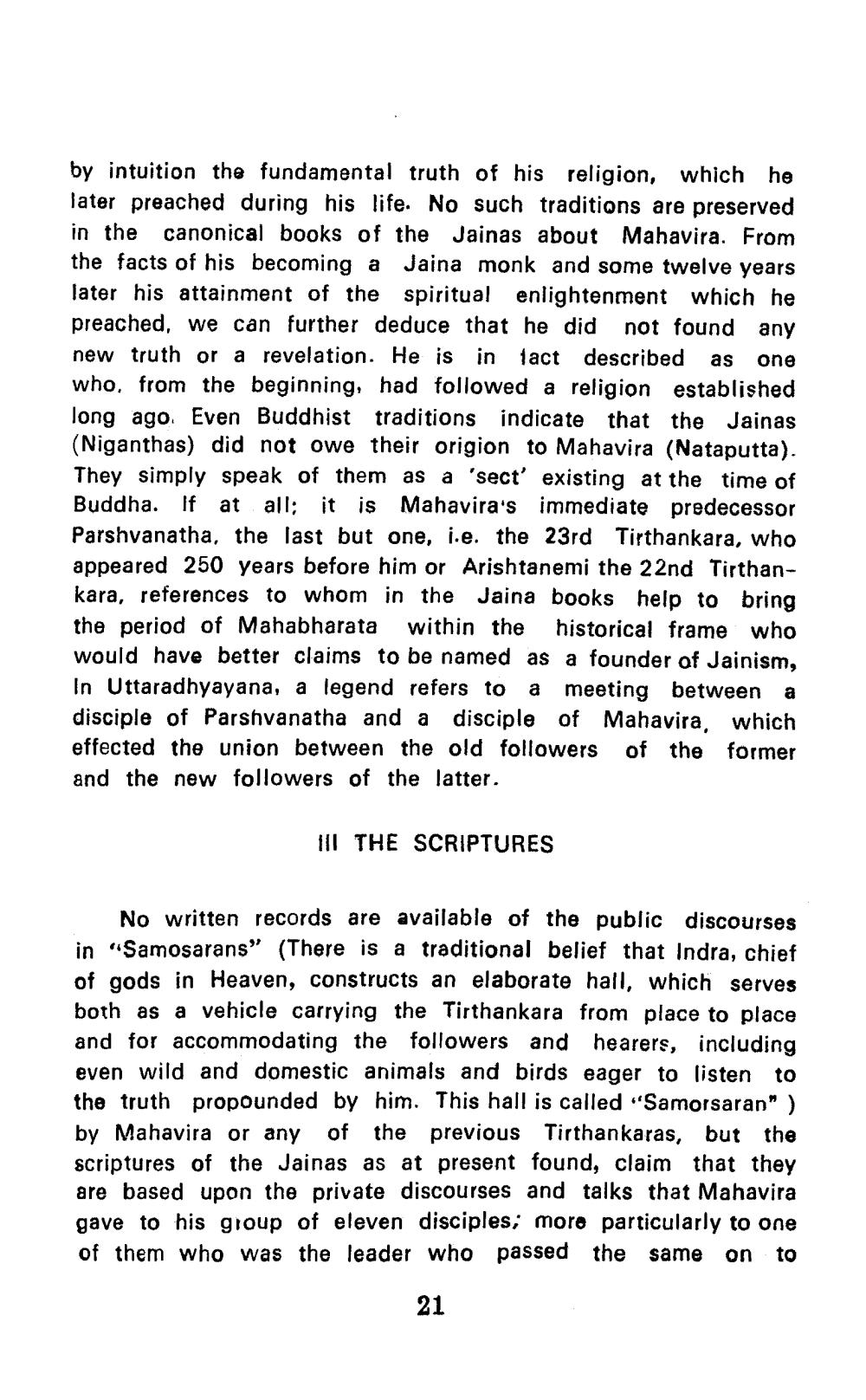________________
by intuition the fundamental truth of his religion, which he later preached during his life. No such traditions are preserved in the canonical books of the Jainas about Mahavira. From the facts of his becoming a Jaina monk and some twelve years later his attainment of the spiritual enlightenment which he preached, we can further deduce that he did not found any new truth or a revelation. He is in fact described as one who, from the beginning, had followed a religion established long ago. Even Buddhist traditions indicate that the Jainas (Niganthas) did not owe their origion to Mahavira (Nataputta). They simply speak of them as a 'sect' existing at the time of Buddha. If at all; it is Mahavira's immediate predecessor Parshvanatha, the last but one, i.e. the 23rd Tirthankara, who appeared 250 years before him or Arishtanemi the 22nd Tirthankara, references to whom in the Jaina books help to bring the period of Mahabharata within the historical frame who would have better claims to be named as a founder of Jainism, In Uttaradhyayana, a legend refers to a meeting between a disciple of Parshvanatha and a disciple of Mahavira, which effected the union between the old followers of the former and the new followers of the latter.
111 THE SCRIPTURES
No written records are available of the public discourses in "Samosarans" (There is a traditional belief that Indra, chief of gods in Heaven, constructs an elaborate hall, which serves both as a vehicle carrying the Tirthankara from place to place and for accommodating the followers and hearers, including even wild and domestic animals and birds eager to listen to the truth propounded by him. This hall is called "Samorsaran" ) by Mahavira or any of the previous Tirthankaras, but the scriptures of the Jainas as at present found, claim that they are based upon the private discourses and talks that Mahavira gave to his group of eleven disciples; more particularly to one of them who was the leader who passed the same on to
21




